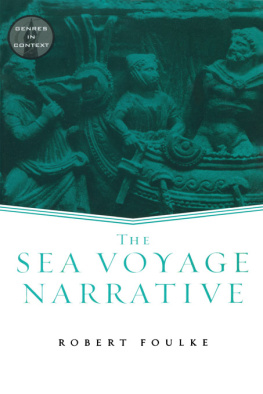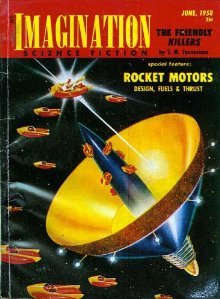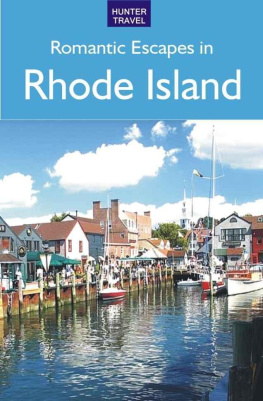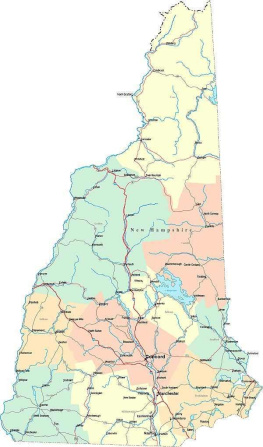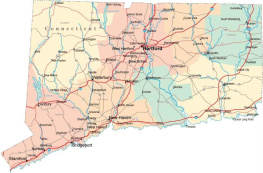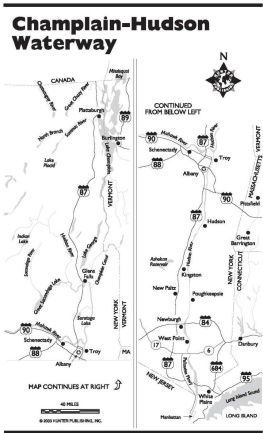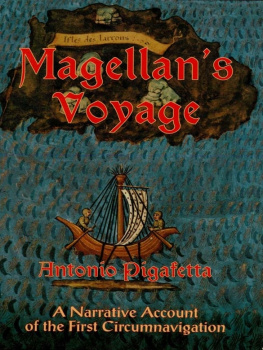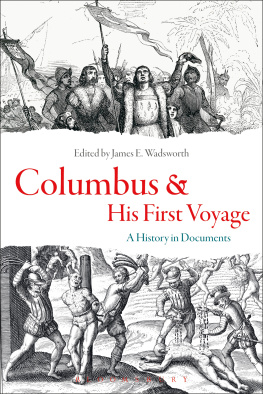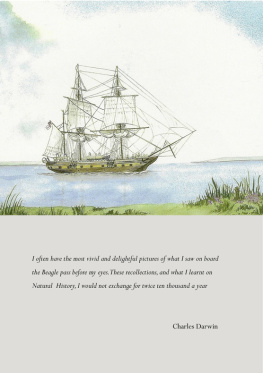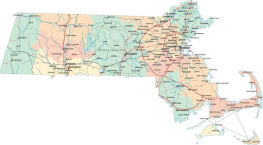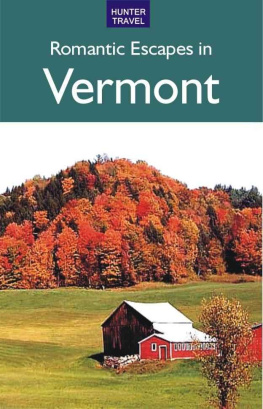Foulke Robert - The Sea Voyage Narrative
Here you can read online Foulke Robert - The Sea Voyage Narrative full text of the book (entire story) in english for free. Download pdf and epub, get meaning, cover and reviews about this ebook. publisher: Taylor & Francis Group, genre: Romance novel. Description of the work, (preface) as well as reviews are available. Best literature library LitArk.com created for fans of good reading and offers a wide selection of genres:
Romance novel
Science fiction
Adventure
Detective
Science
History
Home and family
Prose
Art
Politics
Computer
Non-fiction
Religion
Business
Children
Humor
Choose a favorite category and find really read worthwhile books. Enjoy immersion in the world of imagination, feel the emotions of the characters or learn something new for yourself, make an fascinating discovery.
- Book:The Sea Voyage Narrative
- Author:
- Publisher:Taylor & Francis Group
- Genre:
- Rating:3 / 5
- Favourites:Add to favourites
- Your mark:
- 60
- 1
- 2
- 3
- 4
- 5
The Sea Voyage Narrative: summary, description and annotation
We offer to read an annotation, description, summary or preface (depends on what the author of the book "The Sea Voyage Narrative" wrote himself). If you haven't found the necessary information about the book — write in the comments, we will try to find it.
The Sea Voyage Narrative — read online for free the complete book (whole text) full work
Below is the text of the book, divided by pages. System saving the place of the last page read, allows you to conveniently read the book "The Sea Voyage Narrative" online for free, without having to search again every time where you left off. Put a bookmark, and you can go to the page where you finished reading at any time.
Font size:
Interval:
Bookmark:
Many years ago I drifted into the study of voyage narratives through an interest in Joseph Conrads fiction. Drifting is anathema to all seafarers, who want to control and navigate their vessels, but it does lead one into unexpected places. I found myself sitting in the reading rooms of the British Museum, the Admiralty Library, and the National Maritime Museum in London, studying the history of the British Merchant Service in the late nineteenth century. The impetus driving a literary scholar into maritime history came from otherwise admirable Conrad critics who wrote rather silly things about the action in his voyage fiction simply because they did not understand the historical and technical aspects of the sea world Conrad knew. I had enough sea experience to glimpse that world, and it enriched my reading of the fiction.
Little did I realize that I had entered the Gulf Stream of my academic life, a powerful current that would lead me back to the Odyssey, to a voyage exploring the ancient Mediterranean, to teaching for the Williams College Program at Mystic Seaport and the Sea Education Association at Woods Hole, both ashore and on board its vessels in the Atlantic. Nor could I have guessed that I would eventually take my own Skidmore students to sea on sailing ships as they read voyage literature. Through the years the drifting had become purposeful, a gradual exploration of the massive and amorphous body of writing about the sea and seafaring, loosely referred to as sea literature.
To describe sea literature as a field of study seems a peculiarly inappropriate application of the dead metaphor that separates academic territories. For the scholar, entering it is more like sailing into the Sargasso Sea, a vast expanse of the North Atlantic filled with patches of floating weed that was once mistakenly thought to entrap ships but is now known merely to harbor myriad species of ocean life. The varied fare of sea literature comes in Protean forms and guises, and it resists easy definition for two reasons. In the first place, we cannot separate fact from fiction, history or anecdote from literature. Writers about the sea seldom limit themselves to one mode of dealing with their subject, whether it be simple recording of facts, technical analysis of events, a straightforward chronicle larded with anecdotes, fictionalized autobiography, or pure invention of imagined events in a sea setting.
How then do we establish outer limits for sea literature? If they are inclusive, works will stretch out to the horizon, encompassing voyage narratives, tales about sailors afloat and ashore, poems reflecting the impact of the sea on human imagination, essays on the experience of seafaring, invented voyages to utopia or dystopia, navigational, geographical, scientific, and commercial information included in accounts of voyages of discovery, autobiographies of captains, journals kept by their wives at sea, ship biographies, accounts of shipwrecks and disasters, anecdotes of retired mariners, superstitions, sea lore, chanteys and ballads, and more. Within this potpourri it is difficult to grasp the essence of the subject: Inclusiveness leads to amorphous definition, exclusiveness to a tighter one that might limit the range of sea literature more than we would like.
Second, we usually distinguish literature from the unending strings of ephemeral words that clutter our daily lives by assuming that the text of the former has permanent value. Even a limited focus within sea literature cannot eliminate all the junk weed floating about. Voyage narratives alone compose an ancient and exceedingly abundant portion of writing about the sea, and many of them are indeed fleeting, badly written, and clearly unworthy of continued attention. In making such judgments, I use a very simple pragmatic definition of literature: the felt need to preserve a text intact. It works like litmus paper to separate out pure information, rambling anecdotes, autobiographical puffery, doggerel verse, and the like. Yet such simple intuitions about the nature of literature do not help us much in dealing with writing about the seanot only a mlange of the superb and the inept, of the Odyssey and mass-market adventure stories, but also seemingly endless in variety and form. Sea writing has always been prolific, from its Greek beginnings through the many accounts of geographical discovery collected by Hakluyt in the sixteenth century to the large number of titles published by the Dolphin Book Club in the twentieth century. The very fact that a mass-market book club on sea writing can now be profitable indicates both a wide readership and an active writing industry. Interest in tall ships is burgeoning, sailors undertaking voyages around the world capture media attention, and the steady stream of new books about seafaring, both worthy and insignificant, continues.
Of course, sea literature belongs to a larger family of writing about travel that is equally amorphous and uneven in quality. It is probably the primordial form of travel writing in Western cultures amalgamation of Hebrew and Greek sources, beginning with Noah and Jonah, Odysseus and Jason. That is no surprise given the unfriendly topography of much of the ancient world, composed of barrier mountains and almost impassable deserts. The sea was fearsome and unpredictable, too, particularly along the sometimes harborless coasts of the eastern Mediterranean, but travelers usually got from place to place on it more easily than by struggling over high passes or crossing vast tracts of barren sand.
The word voyage, originally quite precise in its reference to travel by sea, gradually broadened to include other means of conveyance on land, and in some languages, like French, it is used to describe any trip. As other modes of travel supplanted movement by water in practical importancestagecoaches, trains, automobiles, airplanesit is curious that interest in writing about the sea has not waned while coaching, railroading, automobile touring, and even flying have not yet produced comparably rich and varied bodies of travel writing. Such an imbalance may change in time, especially with space exploration, but it is remarkable that public interest in the sea voyage remains strong long after flight has replaced it as the dominant mode of personal transport overseas. The basic vocabulary of the sea voyage has been transplanted wholesale to flight, and it persists in the daily idiom of many languages long after the precise meanings of sea terms have evaporated from consciousness. Even in the trendy realms of adventure travelmountain climbing, camel trekking, white-water rafting, hot-air ballooninginterest in single-handed yacht voyages, round-the-world races, and tall-ship rendezvous holds its own.
The Modern Language Association bibliography recognizes travel literature as a genre but only in the broadest sense of that term, comparable to poetry, fiction, drama, and the like. Definitions of genre that some scholars think more usefulfor example, picaresque novel, Bildungsroman, comedy of manners, elegy, emblemdistinguish formal patterns, conventions, characteristic subject matter, themes, and style more narrowly. For the reasons stated earlier, I regard sea literature, like the larger travel literature that includes it, not as a genre but as a broadly descriptive category with clear but limited usefulness. Within this category, however, sea voyage narratives do in fact constitute a central and clearly definable genre in the narrower sense of the term. That is the focus of this bookone centrally important kind of writing about the sea.
Some of the genres archetypal features, like Noahs preparations for the flood or Jonahs multiple descents into the hold of a ship and the maw of a whale, reflect and extend human experience with unruly watersin one case the periodic inundations of Mideast rivers and in the other the rapid onset of fierce Mediterranean storms. Such storms and encounters with savage peoples on strange shores form the basis of Odysseuss wanderings, and the tradition created by the Odyssey was powerful enough to demand repetition and variation in Apollonius of Rhodess Argonautica, Virgils Aeneid, Dantes Inferno, Joyces Ulysses, Kazantzakiss The Odyssey: A Modern Sequel, and Derek Walcotts Omeros. Readers of Columbuss voyages will recognize some narrative elements (e.g., deception of the crew and immobilization during a storm) that stretch backward in time to the story of Jonah and forward to Melville and Conrad. Many of the voyage narratives collected by Hakluyt in the closing decades of the sixteenth century embody the quest patterns and Utopian themes that reappear later in voyage fiction. After literacy spread into the middle classes in England during the eighteenth century and the novel became the dominant genre, voyage narratives borrowed its conventions and those of other popular genres. Defoe, Fielding, and Smollett particularly exploited the conventions of the picaresque romance for tales about maritime wanderers, while later Scott, Marryat, Cooper, Dana, Melville, and Conrad developed and elaborated the sea bildungsroman.
Font size:
Interval:
Bookmark:
Similar books «The Sea Voyage Narrative»
Look at similar books to The Sea Voyage Narrative. We have selected literature similar in name and meaning in the hope of providing readers with more options to find new, interesting, not yet read works.
Discussion, reviews of the book The Sea Voyage Narrative and just readers' own opinions. Leave your comments, write what you think about the work, its meaning or the main characters. Specify what exactly you liked and what you didn't like, and why you think so.

